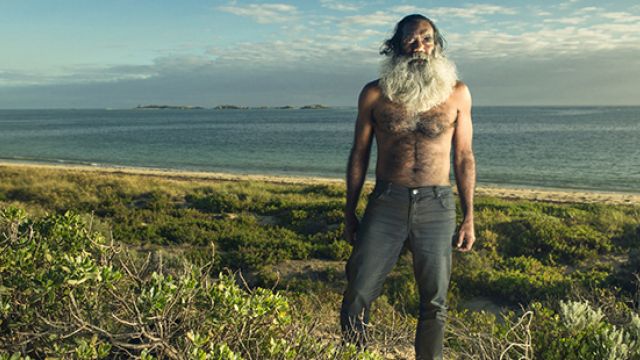The Season
The Season is an undoubted crowd-pleaser – a rambunctious family comedy-drama that is warm, funny, sad, sexy and maybe just a little corny in the best sense. It takes us somewhere we’ve most likely never been – Big Dog Island in wild Bass Straight for ‘the season’ when the Duncan family gather to return to country and to hunt the migratory mutton birds, or shearwaters, for meat, oil and feathers. We see the hunting – in which knotted grey rags stand in for the birds – but the play tells us no more than is necessary about that. As with any good story, it’s not about the hunting; it’s about what the hunting means to the characters. It’s an old-bull-young-bull contest between ageing patriarch Ben (Kelton Pell) and his tearaway son Ritchie (Luke Carroll). It’s a rite of passage for Ben’s daughter Lou’s (Nazaree Dickerson) very urban teenage boy Clay (James Slee). Mr Slee, incidentally, is a natural comedian. His mobile, eloquent face and impeccable timing indicate a great career ahead. And yet his character’s yearning for his whitefella father has a bitter strength.
The mutton birding is a source of dispute between the Duncans and their lickety-split neighbour Neil Watson (Trevor Jamieson) – who also happens to be the sometime –or opportunist – lover of Auntie Marlene (Lisa Mazza). Mr Jamieson demonstrates his great range yet again: his Neil, in overalls and a beanie, scampering about and employing a full-frontal seduction technique, is sheer comedy. Liza Mazza makes her Aunty Marlene a big, loud, always laughing, foul-mouthed presence, all the more moving when we see that all that is a brave front for great regrets.
Processing the birds gives Lou, Auntie Marlene and the matriarch Stella (Tammy Anderson) a chance to catch up, reminisce and gossip. And then there’s a new indigenous Senior Ranger on the beat, Hadgeman (also Trevor Jamieson) trying – in vain – to enforce the rules and regulations and getting a flea in his ear from Ritchie.
At the centre, there’s a sweetness to Ben and Stella’s marriage: he’s gruff and bullying, and she’s wise and patient, but they’ve still got the hots for each other. Ms Anderson doesn’t have a lot to do, but her stillness – and signs of incipient heart troubles – hold our attention. Alone at the stove in the family’s shack, we know she’s thinking back over her life and into the future for her kids. Ms Anderson does a great deal with very little.
Richard Robert’s design is innovative and original with an inspired decision – greatly assisted by Rachel Burke’s lighting that covers bright sunlight and through to the glow off sand and sea at night. Instead of a giant cyclorama, Mr Roberts gives us a strip of the vast sky above and a strip of the sandy slopes of the beaches and mutton bird burrows with a dark open space between, all the way to the back of the stage. Downstage the ramshackle kitchen – a stove, a table and mismatched chairs – is the site of family intimacy, jokes and yarning. Pulling the sense of place together is Ben Grant’s subtle sound design: music from the Brown Boys, the cries of birds and the roar of the sea and the wind.
This is Nathan Maynard’s first play and it’s impressive: he keeps a lot of balls in the air, juggling the riches of the various storylines. Director Isaac Drandic coordinates and choreographs brilliantly so that the pace never slackens and touches such as Mr Jamieson escaping the family’s wrath hot-footing it across the stage on tiptoe are inspired.
Maybe there isn’t a lot of plot, but there are developments that are suddenly, strikingly touching amid the laughs. There are set-ups with no pay-off – as if Mr Maynard wanted to cram in all he knew and had discovered, so The Season covers a lot of ground, albeit in a sprightly manner, merely touching on some big issues, and throwing in a bush fire, for instance, that is, in the end, neither here nor there. But the strength of the characters, the sense of family, the sense of place, the humour and the poignancy easily carry the show through. As for the humour, it’s that distinctly indigenous schtick of outrageous teasing, of ‘chiacking’ (is that word still in use?) and there’s plenty of it. Cast, writer and director are all indigenous Australians and the play asserts their vitality and distinctiveness as well as their connection to their country. There’s no ‘poor me’ and victimhood here. If Aunty Marlene made some mistakes, they are merely human; sons will challenge their fathers and fathers will get old and have to concede their power, and mothers everywhere will always fret for their kids.
Michael Brindley
Photographer: Simon Pynt
Subscribe to our E-Newsletter, buy our latest print edition or find a Performing Arts book at Book Nook.

